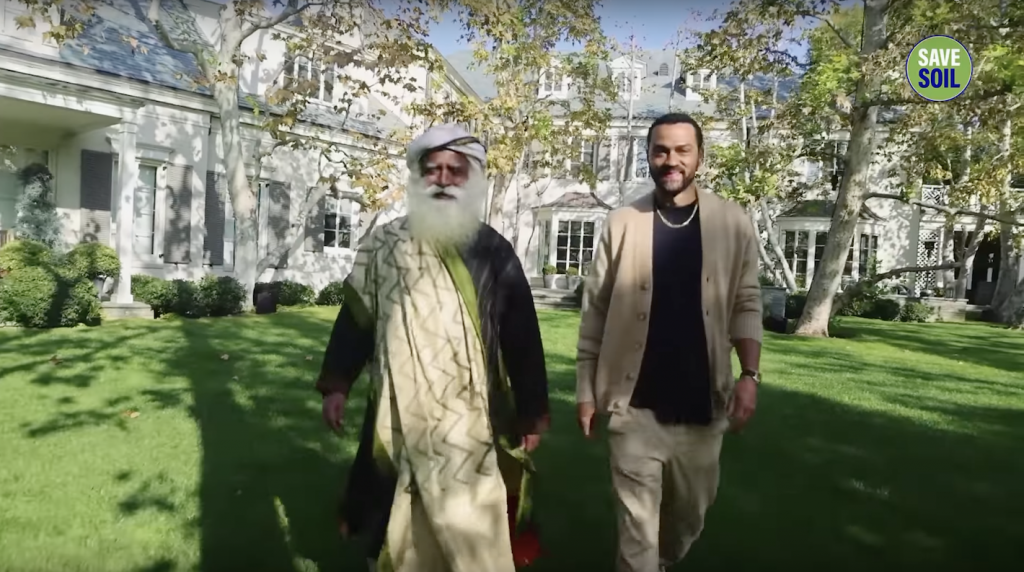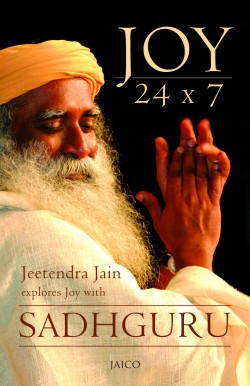
In a frank and freewheeling conversation, Sadhguru is joined by Tony-nominated actor, director, producer and activist, Jesse Williams. In addition to discussing the Conscious Planet initiative and Save Soil movement, they cover numerous other topics, including oppression and police violence against African Americans, social justice issues related to food and agriculture, and the cognitive, emotional, and psychological burdens of poverty. Through all this, Sadhguru insists on the importance of the public knowing that our food comes from the soil, and without healthy soil, we are all lost, regardless of race, social class, or any other factors. As such, we have to demand something better than the current system. He goes on to highlight India as a potential example to the world, especially considering Isha Foundation’s work helping convert farmers to tree-based agriculture.
In that vein, much of the video focuses on addressing the current global soil crisis. For instance, after discussing widespread soil degradation across Africa, where approximately 45% of the continent has been seriously affected by desertification, Williams asks whether or not there is a universally agreed upon ideal response to this crisis, to stopping the descent of the Sahara desert.
Sadhguru replies: “Yes. Yes. See, when you say universally agreed upon, in principle yes, but in actual application it’s different, depending on the regions, the temperatures, the atmospheric conditions, the agricultural traditions, the latitudinal position on the planet. Accordingly it’s different for different regions and also the soil types. So in application it’s different. In principle it is same in the sense… See, organic content comes from only two sources, either from plants or from animals. Either green litter from the trees and plants or from animal waste. This is the only way. There is simply no other way, okay. Nobody can produce organic material in a factory or there is some technology. I am stressing on this because in California whenever I start talking, people say, “My friend has started a new startup, we are coming up with a new app.” You can do whatever apps and stuff; in application, there can be technology, but in fundamental, this is all it is: you need to produce organic content. Right now, you just see any farmer, largely, most farmers, are they producing any organic content on their land? Because it’s machines.There are no animals. There are no trees. Where is organic content? They may buy some manure from somewhere. How much manure will you transport from hundreds of miles? That’s not going to work. For your land, what organic content you need, that many trees and that many animals must be there. The machines don’t give out any waste. The waste that they give out is poisonous. It is not enriching for the soil . . . to put it simply, I’m saying the tractor doesn’t shit like the cow, okay.”
Regarding top priorities, Sadhguru goes on to add: “So the most important thing that needs to happen right now, it needs to enter the policy of every nation on the planet that minimum three to six percent organic content must be there in agricultural land. How you get it, it’s your business; get it whichever way. We will provide you hundreds of ways in which you can do it. Do it your way, but if you want to own agricultural land, you must have three to six percent organic content. This is not even about you because soil is not our property. Soil is a legacy that’s come to us from previous generations. We must pass it on like that to the next generation. You can’t leave dead soil for future generations.”
Attend a free webinar “Meditation for Beginners” to explore a simple yet powerful 12-18 minutes meditation that can bring clarity, health and joy. Visit www.innerengineering.com/freeyoga




